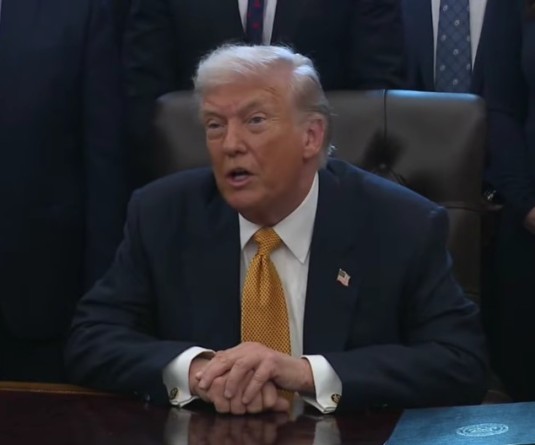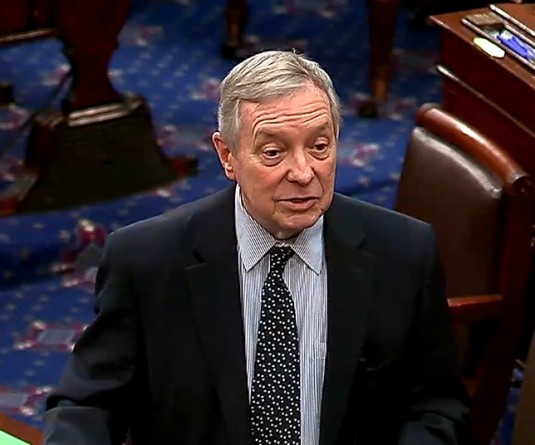
KABUL, February 16 (AP): The International Monetary Fund is recommending that Afghanistan's troubled Kabul Bank be placed into receivership and then quickly sold off as part of a broader effort to stabilize the country's shaky financial system.
The IMF made the recommendations Tuesday after a visit by fund officials to assess the nation's economy and work through an impasse over extending Kabul further credit. It urged Afghan officials to put together a "transparent, credible and fully financed" plan to settle problems at the country's largest bank, which came close to collapse last year after allegations of mismanagement, cronyism and questionable lending.
The bank has close ties to Afghanistan's ruling elite. Sherkhan Farnood, the former bank chairman and a world class poker player who raised money for President Karzai's re-election campaign, owns 28 percent of the bank's shares. The president's eldest brother, Mahmood Karzai, owns 7 percent. A brother of one of Afghanistan's two vice presidents is also a shareholder.
Afghanistan's Central Bank took control of Kabul Bank in mid-September after a run on the lender sparked by the removal of two top executives. It has spent the past several months combing the bank's books with the aim of determining its exposure and recouping loans.
In a statement issued late Tuesday, the IMF called on Afghan officials to lay out clear steps to deal with Kabul Bank and safeguard the financial system, and to prosecute those involved in fraud or other illegal activity at the company.
Placing Kabul Bank into receivership - a type of bankruptcy - is "the most appropriate mechanism" for resolving problems there, the IMF said.
"This will be followed by a process where the bank will be rapidly sold or wound down and the Central Bank is recapitalized with government resources as needed," the IMF said.
Afghan officials in the past have said they would stand fully behind Kabul Bank and are committed to collecting all the lender's outstanding loans. An investigation by Afghanistan's attorney general is ongoing.
The government has vowed a thorough audit of other private banks that have sprung up since the U.S.-led invasion in 2001 to determine the depth of problems within the financial sector.
The governor of Afghanistan's Central Bank said this month the bank has made $540 million worth of loans. But international officials say the size of the loan book could stand closer to $900 million - loans they fear may never be fully repaid.
Abdul Qadir Fitrat, the Central Bank governor, declined to comment on the IMF recommendations when reached by The Associated Press on Wednesday.
But Najibullah Manalai, an adviser to the finance minister, voiced support for the actions taken by the Central Bank so far to shore up the financial system. He said discussions with the IMF are still ongoing.
"So far, we are happy with whatever decision has been taken by the Central Bank," Manalai said. "The finance minister supports any measures that will maintain the stability of the country's banking system."
The IMF made the recommendations Tuesday after a visit by fund officials to assess the nation's economy and work through an impasse over extending Kabul further credit. It urged Afghan officials to put together a "transparent, credible and fully financed" plan to settle problems at the country's largest bank, which came close to collapse last year after allegations of mismanagement, cronyism and questionable lending.
The bank has close ties to Afghanistan's ruling elite. Sherkhan Farnood, the former bank chairman and a world class poker player who raised money for President Karzai's re-election campaign, owns 28 percent of the bank's shares. The president's eldest brother, Mahmood Karzai, owns 7 percent. A brother of one of Afghanistan's two vice presidents is also a shareholder.
Afghanistan's Central Bank took control of Kabul Bank in mid-September after a run on the lender sparked by the removal of two top executives. It has spent the past several months combing the bank's books with the aim of determining its exposure and recouping loans.
In a statement issued late Tuesday, the IMF called on Afghan officials to lay out clear steps to deal with Kabul Bank and safeguard the financial system, and to prosecute those involved in fraud or other illegal activity at the company.
Placing Kabul Bank into receivership - a type of bankruptcy - is "the most appropriate mechanism" for resolving problems there, the IMF said.
"This will be followed by a process where the bank will be rapidly sold or wound down and the Central Bank is recapitalized with government resources as needed," the IMF said.
Afghan officials in the past have said they would stand fully behind Kabul Bank and are committed to collecting all the lender's outstanding loans. An investigation by Afghanistan's attorney general is ongoing.
The government has vowed a thorough audit of other private banks that have sprung up since the U.S.-led invasion in 2001 to determine the depth of problems within the financial sector.
The governor of Afghanistan's Central Bank said this month the bank has made $540 million worth of loans. But international officials say the size of the loan book could stand closer to $900 million - loans they fear may never be fully repaid.
Abdul Qadir Fitrat, the Central Bank governor, declined to comment on the IMF recommendations when reached by The Associated Press on Wednesday.
But Najibullah Manalai, an adviser to the finance minister, voiced support for the actions taken by the Central Bank so far to shore up the financial system. He said discussions with the IMF are still ongoing.
"So far, we are happy with whatever decision has been taken by the Central Bank," Manalai said. "The finance minister supports any measures that will maintain the stability of the country's banking system."






